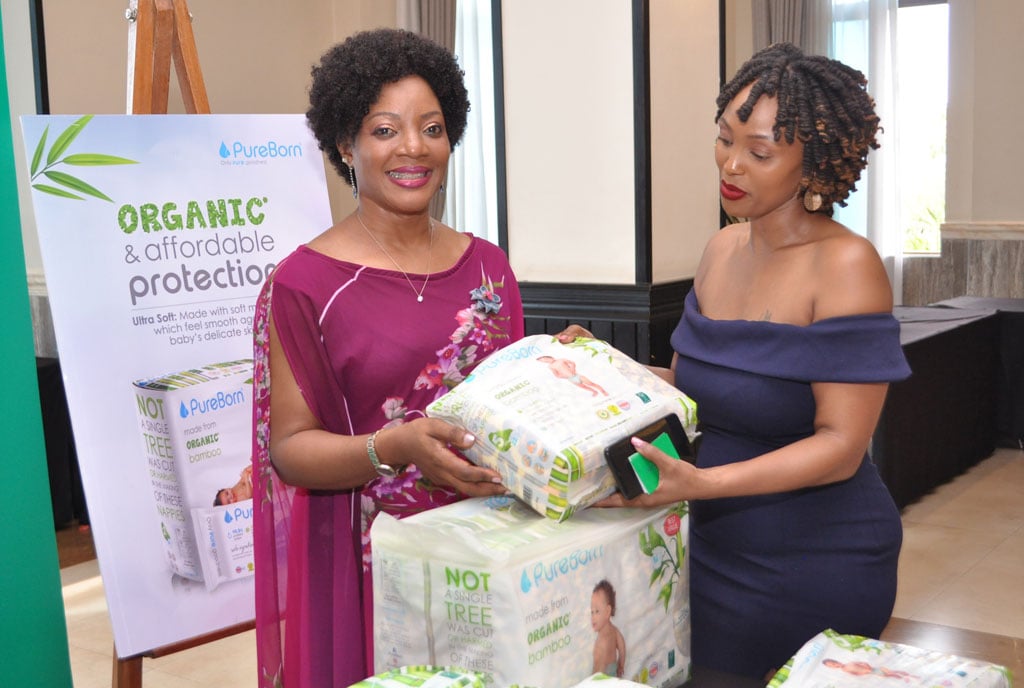Prime
Substandard diapers flood market, experts warn

Paediatric and infectious diseases specialist Dr Sabrina Kitaka and Ms Barbara Chuma, a mother of five and a public relation practitioner, pose for a picture during an luncheon to commemorate Mother’s Day in an event that coincided with the launch of Pure Born baby diapers and wipes from organic bamboo in Kampala on May 8, 2022.
What you need to know:
- 60%: The percentage of babies that develop diaper rash or allergies because of substandard diapers, according to Dr Sabrina Kitaka, a paediatric infectious diseases specialist.
- When contacted, the spokesperson of Uganda National Bureau of Standards (UNBS), Ms Sylvia Kirabo, said diapers are specialised under the high risk products.
Cases of discomfort and allergies resulting from the infant use of substandard diapers in the domestic market are increasing, a senior paediatrician has warned.
According to Dr Sabrina Kitaka, a paediatric infectious diseases specialist and also a senior lecturer in the Department of Paediatrics at Makerere University School of Medicine, many diapers in the market, particularly those that are not organic, have high potential of causing diaper rash and discomfort in infants.
“With organic diapers, I doubt that babies are going to have many allergies,” Dr Kitaka said during a luncheon in Kampala last week to commemorate Mother’s Day, which coincided with the launch of Pure Born baby diapers and wipes from organic bamboo.
She said: “I know for a fact that nearly 60 percent of babies born develop a diaper rash or some allergies because of substandard products that trigger their allergy. So one way to avoid these situations is to ensure children some of whom use diapers even beyond three years, use organic diapers and that will reduce cases of nappy rash and related allergic reactions.”
Ms Barbara Chuma, a mother of five, said in the long run, using the right diapers is cheaper as parents will avoid frequent clinic visits.

Diapers. PHOTO/COURTESY
When contacted, the spokesperson of Uganda National Bureau of Standards (UNBS), Ms Sylvia Kirabo, said diapers are specialised under the high risk products.
“This means that we give it priority in our assessment activities. And remember majority of these diapers are actually imported into the country. And through our systems we have sampled and tested many brands that have actually passed because we have a Uganda standard for diapers and therefore, we are able to test and confirm whether a particular diaper is safe for consumption or not,” she noted.
ALSO READ: Saving on unnecessary child expenses
Ms Kirabo said they would continue to pull out substandard diapers from the market and prosecute the culprits involved.
She added: “We also do import inspection through the PVOC programme. So it is not correct that all the products on the market are counterfeit.
“But we also welcome feedback from the public and the doctors. We are ready to act if they can give us information on particular diapers so that we can spring into action. For consumers they must always look out for UNBS Q mark because that confirms the safety of the product.”




